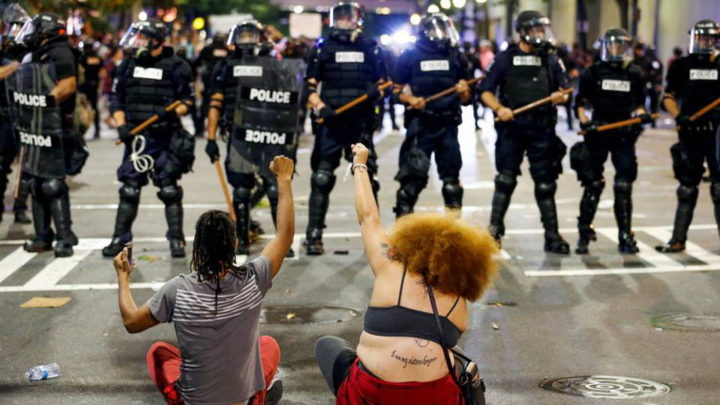In Charlotte, North Carolina, protests continue for a third day to demand police release video of the shooting of African-American father Keith Lamont Scott. North Carolina Governor Pat McCrory has declared a state of emergency and mobilized the National Guard. The Charlotte mayor has also imposed a midnight curfew, amid the ongoing protests. While the police initially claimed they tased and then shot Scott because he was armed, Scott’s family says he was not armed—except with a book in hand. They say he had been sitting in his car, waiting to pick up his son after school.
On Thursday, Charlotte-Mecklenburg Police Chief Kerr Putney walked back the claims that Scott had a gun. “The video does not give me absolute, definitive visual evidence that—that would confirm that a person is pointing a gun. I did not see that in the videos that I’ve reviewed.”
Scott’s family has now been shown the video, but it has not yet been released to the public. Meanwhile, the protester who police claimed was the victim Wednesday of a “civilian on civilian” shooting has died. Several eyewitnesses dispute the police’s explanation. Charlotte public defender Eddie Thomas told The Guardian he believes the protester was shot by a tear gas canister, pepper ball or other projectile that caused him to stumble back and hit his head on the brick sidewalk.
Meanwhile in Tulsa, Oklahoma, police officer Betty Shelby has been booked and released, after she was charged with felony manslaughter in the fatal shooting of African American Terence Crutcher. Video footage shows Officer Shelby, who is white, shooting and killing Crutcher while his hands were in the air. The criminal complaint says Shelby’s “fear resulted in her unreasonable actions which led her to shooting.” Crutcher’s killing has sparked protests throughout the week in Tulsa. If convicted, Shelby faces four years to life in prison.










